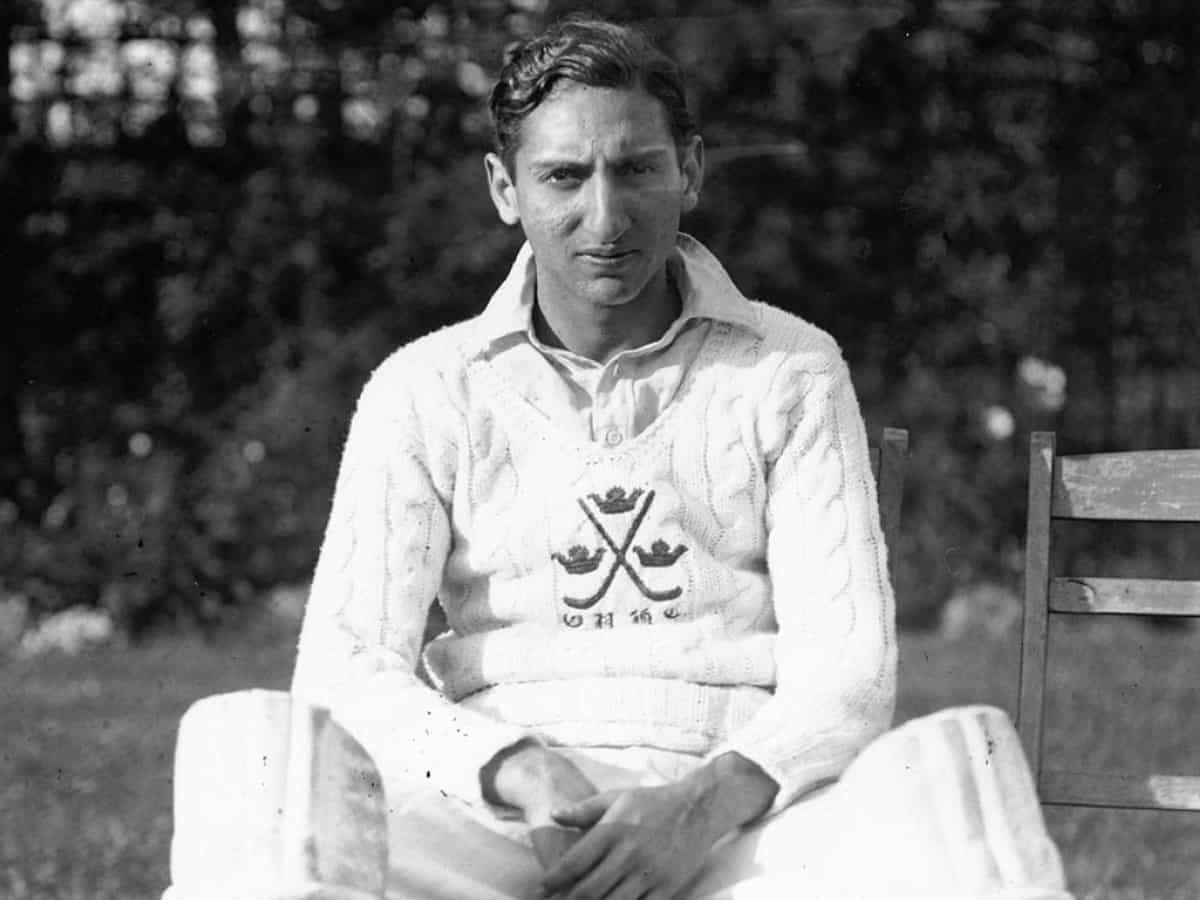
Before embarking on the tour of Australia in 1932-33, the captain of England’s cricket team, Douglas Jardine, had already formed a plan about how to tackle the Australian batsmen, in particular Don Bradman. He had not revealed his plan to anyone so as to prevent it from being leaked to the media. But after the team had begun the voyage on board the ship, he called his players together one day.
After lining up his players on the deck he revealed his strategy to them. He instructed them to develop a hatred for the Australians. “Our fast bowlers will attack on the leg stump line with short pitched deliveries and we will set a predominantly leg side field,” he revealed. As he explained his plan in detail, most England players agreed with his policies except for two team members. One was fast bowler Gubby Allen and the other was Iftikhar Ali Khan Pataudi.
The latter spoke up immediately and told his skipper that the tactics would not be in keeping with the principles of good sportsmanship. When the Test matches began, the Nawab scored 102 in the very first Test. His teammates Herbert Suttcliffe and Wally Hammond also scored centuries which enabled England to win the Test by ten wickets.
But in the simmering tension between Iftikhar Ali Khan and his captain Jardine came to the forefront in the second Test. When the captain instructed Pataudi to take up a fielding position within the arc on the leg side, the Indian flatly refused. He told his skipper that he will not be a party to this unsportsmanlike conduct. Jardine sneered at him: “I see his Highness is a conscientious objector.” But Iftikhar Ali Khan stood by his statement and did not budge.
It so happened that in that Test, Iftikhar Ali Khan could not get a big score and Australia won by 111 runs. That result provided Jardine with the excuse that he needed to drop the Indian player from the side. But the incident brought into sharp focus Iftikhar Ali Khan’s love for fair play and courage to stand by his beliefs. The Nawab came from a long line of warriors and he showed his bravery by opposing his own captain when he felt that the spirit of sportsmanship was being blatantly disregarded.
He was born on March 16th, 1910 – that is exactly 122 years ago from today. His family was the ruling house of Pataudi which is a small princely state that now lies in Haryana. The Pataudi family’s origins begin with Faiz Talab Khan who belonged to the Barech tribe of Afghanistan. Faiz Talab Khan became the first ruler of Pataudi in 1804. From his mother’s side Iftikhar Ali Khan was related to the Nawab of Loharu who in turn was linked to several important personalities in history.
Iftikhar Ali Khan was educated at Aitchison College in Lahore and Balliol College, Oxford, before marrying Begum Sajida Sultan who was the daughter of Hamidullah Khan, Nawab of Bhopal. Iftikhar was an excellent cricketer and is the only player to have represented both England as well as India in Test cricket. But not many are aware of the fact that he was also a top class hockey player and was named in the Indian squad before the 1928 Olympic Games.
Back then India was the best team in world hockey so just being named in the list automatically meant that he was among the world’s best hockey players too. However, he could not take part in the Olympics due to various personal reasons. He was also a very good polo and squash player. Later in his cricket career he was named captain of India on his tour of England in 1946. But by then he was past his prime and his performance did not have that earlier class.
But his wit and humour continued to regale many people including Englishmen. On one occasion, as captain of the Indian team, he was asked to give a speech after a formal dinner party which was attended by several dignitaries. Around the same time, a three-member delegation of the British Government was scheduled to meet Jawaharlal Nehru and other Indian leaders for a discussion.
So Iftikhar Ali Khan began his speech by remarking that his task as captain of the Indian cricket team was even more difficult than the task faced by the political leaders of India. “They will have to deal with three Englishman while I will have to tackle eleven Englishmen,” he said amidst roars of laughter.
Later when India became independent, the Nawab voluntarily acceded to India and his act was praised by many important personalities. The well known civil servant of that time Mr. V.P. Menon has mentioned his decision in the book The Story Of The Integration Of Indian States and referred to Iftikhar Ali Khan Pataudi as a great patriot.
Sadly the Nawab passed away of a heart attack on 5th January 1952. It was his son Mansur’s 11th birthday. Mansur Ali Khan also went on to become a famous cricketer but he never celebrated his birthday thereafter in memory of his father. It was while playing a game of polo that the senior Nawab met his end. So he left for his heavenly abode in a manner that befitted his approach to life. Till his last breath he remained a great sports lover and a passionate follower of the ideals of sportsmanship and fair play.

